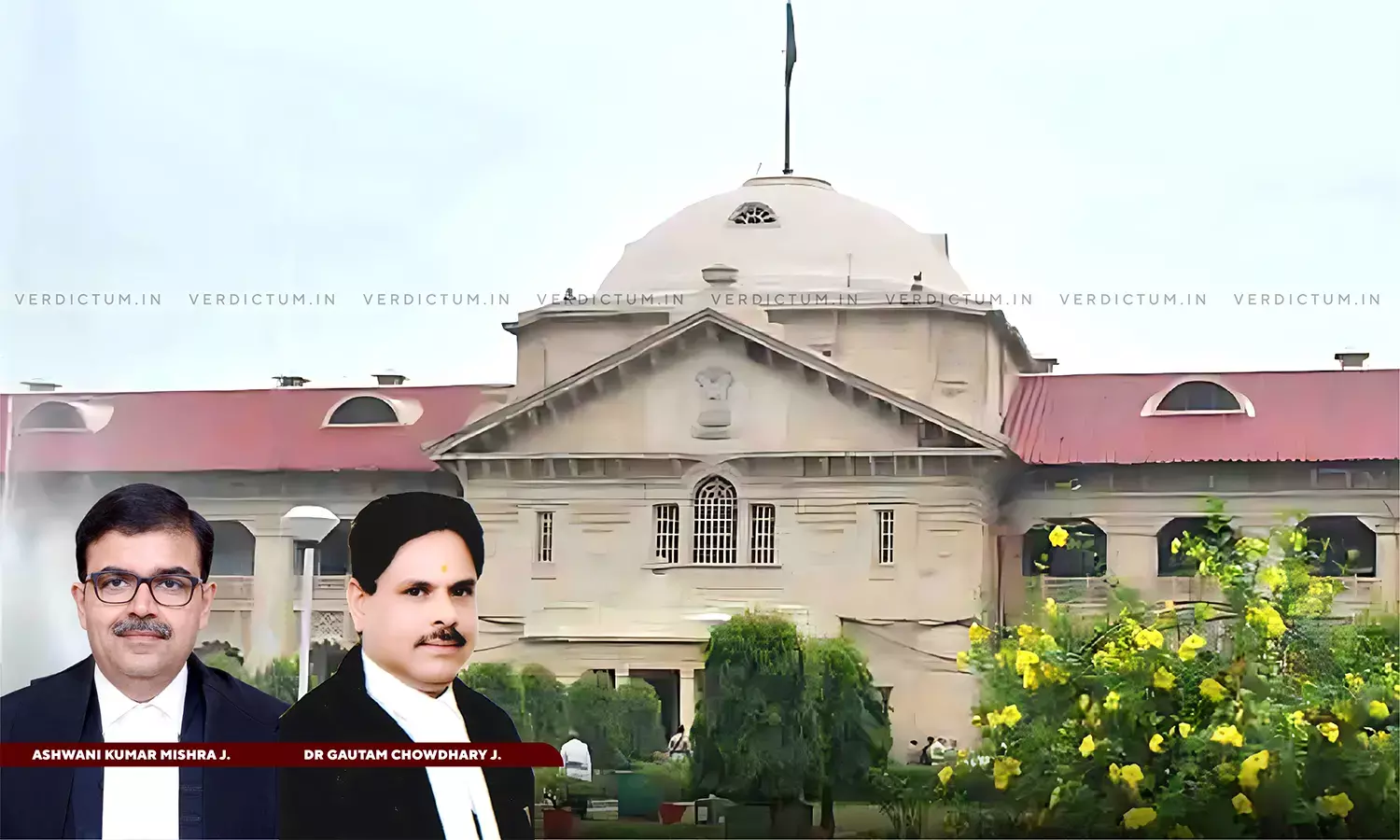Allahabad HC Issues Warning To Advocate For Misconduct, Stresses On Courteous Behaviour Towards Judges
During suo moto contempt proceedings, the Allahabad High Court has reiterated the necessity for advocates to maintain decorum and respect towards judicial officers.
The Division Bench of Justice Ashwani Kumar Mishra and Justice Dr. Gautam Chowdhary, made strong observations about the standards of conduct expected from lawyers, particularly towards judges.
The Court remarked, “Instances of the kind in which advocates show discourteous behaviour towards the Presiding Judge cannot be tolerated. Judges can function only in a cordial atmosphere. Being an officer of the court, an advocate cannot be expected to be either discourteous to the Judge or use intemperate language against the Presiding Officer.”
The Court further expressed concern over the increasing instances of discourteous behaviour by advocates, noting that such actions disrupt the functioning of the courts and undermine public confidence in the judicial system. It emphasized that while lawyers have a duty to represent their clients zealously, this must be done within the bounds of professional ethics and respect for the judiciary.
Despite finding the Advocate’s behavior unacceptable, the Court opted for leniency considering his inexperience and clean record, but directed future monitoring of his conduct.
The case originated from a reference made by the Civil Judge (Junior Division/Fast Track Court (CAW)), Kanpur Nagar, regarding the inappropriate conduct of the advocate during a court proceeding on February 3, 2023. According to the reference, the Advocate had not only questioned the Presiding Officer's authority but also snatched files from the court staff, causing disruption in the proceedings. It was further noted that this was not an isolated incident, as the advocate had allegedly misbehaved on other occasions as well.
Following these reports, the High Court initiated suo moto contempt proceedings against the lawyer. In such cases, courts act on their own accord to address contemptuous behaviour, without a formal complaint from any party. This is often done to preserve the integrity and decorum of the judicial process.
The contemnor initially tendered an apology for his conduct, but both the Presiding Officer and the High Court found the apology unsatisfactory. As a result, the advocate was directed to submit a fresh, unconditional apology. Complying with the court’s direction, the lawyer subsequently submitted a revised affidavit, expressing unconditional regret for his behavior.
The Counsel representing the advocate sought leniency from the Court, arguing that his client was a young and relatively inexperienced lawyer with no prior record of misconduct. He emphasized that the advocate’s behaviour, while inappropriate, should be viewed as an isolated lapse in judgment rather than a pattern of unprofessional conduct.
Although the Court was inclined to take a serious view of the advocate’s behavior, it ultimately decided to exercise leniency, taking into account the lawyer’s young age and the fact that he had no prior record of misconduct. The Court noted that the advocate had tendered a sincere, unconditional apology and expressed genuine remorse for his actions.
However, the Court did not let the matter rest entirely. In its ruling, it directed the District Judge to closely monitor the advocate’s conduct for the next two years. A report on the lawyer’s behavior is to be submitted to the High Court at the end of this period. This measure, the Court indicated, would ensure that the advocate takes his professional responsibilities more seriously in the future and refrains from any further misconduct.
"We were inclined to take a more serious view in the matter, but considering the fact that contemnor is a young advocate and there has been no previous allegation of such conduct on his part, we drop the present proceedings by issuing him a strict warning. We, however, make it clear that in the event any such undesirable act on part of the contemnor is brought to our notice this Court shall proceed to revive the proceedings of instant contempt and take serious view in the matter. A report of the concerned District Judge would be submitted before the Registry of this Court upon expiry of two years with regard to the satisfactory conduct of the contemnor," the Court said.
Cause Title: In Re v. Shri Yogendra Trivedi [Neutral Citation No. 2024:AHC:147293-DB]
Appearance:-
Applicant: Advocate Sudhir Mehrotra
Opposite Party: Advocate Sharad Kumar Srivastava
Click here to read/download the Order




